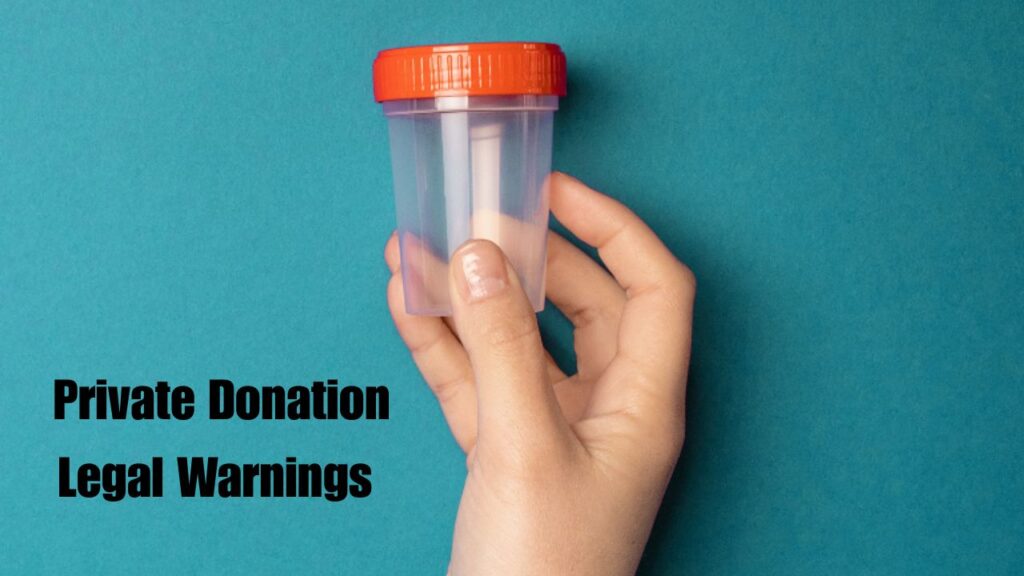Private Sperm Donation in Australia – Private sperm donation in Australia has become an increasingly discussed topic due to changing family dynamics and fertility choices. Many individuals and couples are exploring private arrangements instead of going through licensed fertility clinics. While this option can seem more personal and cost-effective, it also brings significant legal and emotional risks. This article explains what private sperm donation involves, the potential legal consequences for both donors and recipients, and what steps you should take to avoid common pitfalls under Australian law.

Understanding Private Sperm Donation in Australia
Private sperm donation in Australia refers to arrangements made outside of licensed fertility clinics, where donors and recipients connect directly—often through social media, online platforms, or personal networks. While legal, these arrangements come with complex implications, particularly regarding parental rights and responsibilities. Under Australian law, a sperm donor may be considered a legal parent if conception occurs through private means rather than through an accredited fertility clinic. Therefore, understanding these legal distinctions is crucial before proceeding with any private sperm donation agreement.
Legal Risks of Private Sperm Donation for Donors and Recipients
One of the most significant risks in private sperm donation across Australia involves parental responsibility. In cases where a child is conceived outside a regulated fertility clinic, courts may view the sperm donor as the legal father—granting them rights and obligations such as child support or custody. This legal ambiguity can lead to disputes if no clear written agreement exists. For recipients, the absence of medical screening and documentation may raise health and inheritance concerns for the child. Seeking professional legal advice before proceeding with private sperm donation can help safeguard both parties.
| Key Aspect | Details |
|---|---|
| Legal Parentage | Donor may be recognized as the legal father if donation occurs privately. |
| Recommended Approach | Use accredited fertility clinics to ensure legal clarity and safety. |
| Medical Screening | Mandatory in clinics, often skipped in private arrangements. |
| Documentation | Written agreements recommended but not legally binding in all states. |
| Risk Level | High in private donations due to lack of formal regulation. |
How to Protect Yourself in Private Donor Arrangements
To minimize legal and emotional risks, both donors and recipients in Australia should take precautionary steps before engaging in private sperm donation. Drafting a clear written agreement outlining intentions, contact expectations, and future involvement is essential. However, such agreements may not always hold up legally, so consulting a family lawyer experienced in reproductive law is recommended. Health screening for genetic and infectious diseases is also vital for safety. Above all, using recognized fertility clinics remains the most reliable method for legally secure sperm donation arrangements in Australia.
Private Sperm Donation Laws in Australia
Australian laws on private sperm donation vary by state, but generally prioritize the welfare and rights of the child. For example, in New South Wales and Victoria, donors may be identified and contacted by the child once they reach adulthood. This ensures transparency and a sense of identity for donor-conceived children. While these laws are designed to protect all parties, misunderstanding or ignoring them can result in long-term legal disputes. Therefore, it’s essential to understand state-specific legislation before proceeding with any donor arrangement.
Frequently Asked Questions (FAQs)
 Building Connections – How Donor Conceived People Find Family Through DNA Testing & Support Groups
Building Connections – How Donor Conceived People Find Family Through DNA Testing & Support Groups
1. Is private sperm donation legal in Australia?
Yes, private sperm donation is legal, but it carries potential legal and parental risks if not managed correctly.
2. Can a sperm donor claim parental rights in Australia?
In some cases, yes—especially if the conception happens privately and not through a licensed fertility clinic.
3. Are private donor agreements legally binding?
No, such agreements may not always hold up in court depending on state laws and circumstances.
4. What is the safest way to become a sperm donor?
The safest and most legally secure way is to donate through an accredited fertility clinic.


